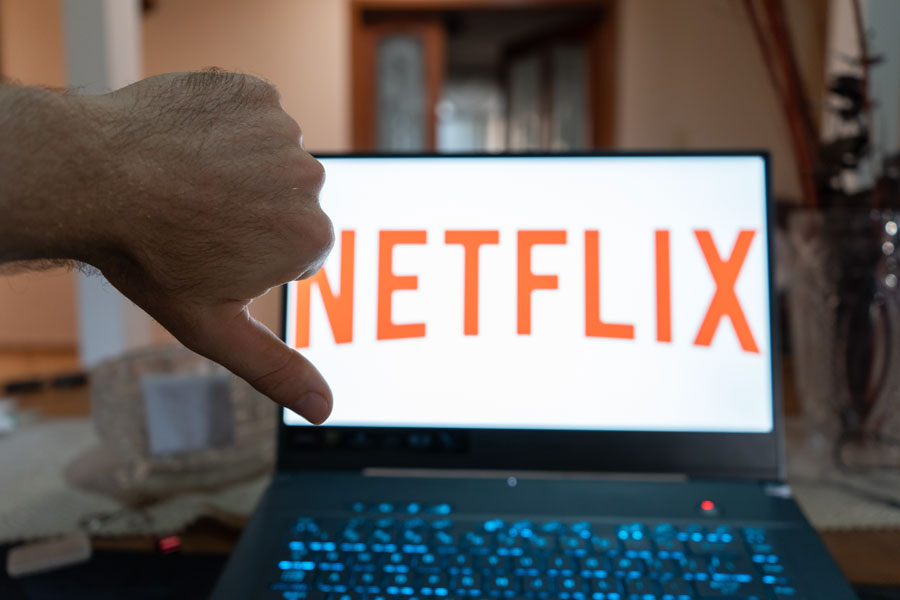Elon Musk Joins Growing Boycott as Netflix Faces Backlash Over Animated Series “Dead End: Paranormal Park”

NEW YORK, NY – A new wave of controversy has erupted around Netflix following the resurgence of criticism over its animated series Dead End: Paranormal Park, which features a transgender teenage character. The show – first released in 2022 and praised for its diversity and inclusivity – has become the center of an online campaign urging users to cancel their subscriptions, led in part by billionaire entrepreneur Elon Musk.
The dispute began after old social media posts allegedly made by the show’s creator, Hamish Steele, resurfaced in late September. Some claimed the comments mocked the death of conservative activist Charlie Kirk, though others argued the screenshots were taken out of context or fabricated. What started as a fringe social media skirmish quickly escalated into a full-scale boycott campaign amplified by high-profile figures.
Musk, who has a massive following on X (formerly Twitter), posted that he had “canceled Netflix for the health of your kids”, sparking tens of thousands of reposts and a surge of the hashtag #CancelNetflix across multiple platforms. The controversy has since taken on broader cultural dimensions, with political commentators and advocacy groups weighing in on issues of free expression, representation, and corporate accountability.
At the core of the backlash is a familiar debate: how far streaming platforms should go in introducing LGBTQ+ storylines in content labeled for younger audiences. Supporters of the show argue that its themes of friendship, identity, and courage are essential for children navigating modern society. Critics, however, contend that such themes are ideological or inappropriate for minors.
Netflix has not yet issued an official statement addressing the boycott, a decision that some analysts see as strategic silence. The company has historically stood by its creators, citing artistic freedom and audience choice. Others note that Netflix’s broader catalog contains a wide range of programming, from family-friendly shows to mature content, allowing parents to use content filters to control access.
The boycott made headlines again when Netflix’s stock price dipped in early October, briefly shedding an estimated $15 billion in market capitalization. While shares have since recovered slightly, analysts suggest that Musk’s influence – combined with rising polarization over cultural content – has created a short-term perception risk for the streaming giant.
According to Barron’s, analysts cautioned investors not to overreact, writing that “social media controversies rarely have lasting effects on long-term business fundamentals.” The report added that Netflix’s valuation continues to depend on core metrics such as subscriber growth, global expansion, and content strategy, not on temporary online trends.
As of now, there is no verifiable data indicating a measurable subscriber loss tied to the boycott. The company’s next quarterly earnings report, expected later this month, may shed more light on whether the movement has had any lasting effect.
The Dead End controversy is the latest in a series of cultural flashpoints where streaming platforms find themselves in the crossfire between inclusivity advocates and conservative critics. Similar debates have emerged over Disney+, YouTube Kids, and other platforms that have added diverse or gender-nonconforming characters.
For Netflix, the challenge lies in balancing its commitment to diversity with the business realities of serving a politically divided global audience. Whether the current boycott leads to any tangible shifts in programming or policy remains uncertain.
Netflix Controversy
| Key Issue | Details |
|---|---|
| Subject | Netflix boycott over Dead End: Paranormal Park |
| Main Trigger | Alleged resurfaced posts by creator Hamish Steele and inclusion of transgender character |
| Leading Figure | Elon Musk, who publicly canceled his subscription |
| Public Reaction | Surge of #CancelNetflix trend; divided cultural response |
| Financial Impact | Roughly $15 billion market cap drop before partial rebound |
| Netflix Response | No official statement as of October 7, 2025 |
| Broader Themes | Representation in children’s media, culture wars, corporate responsibility |
Q&A: Dead End: Paranormal Park Controversy
Q: Why are people boycotting Netflix?
A: The boycott began over Dead End: Paranormal Park, an animated show featuring a transgender teen, and escalated after controversy surrounding alleged social media posts from its creator. Critics accuse Netflix of promoting inappropriate themes for children, while supporters argue it promotes inclusion and acceptance.
Q: What role did Elon Musk play in this?
A: Musk amplified the boycott after announcing he canceled his own Netflix subscription, calling on others to do the same. His posts sparked widespread media coverage and intensified the movement.
Q: Has Netflix responded to the backlash?
A: As of now, Netflix has not released a public statement directly addressing the boycott or Musk’s comments. The company has typically avoided engaging in politically charged disputes.
Q: Is the boycott having a real effect?
A: There’s been a temporary dip in Netflix’s stock price, but no confirmed data showing large-scale subscriber losses. Analysts believe the impact is likely to be short-term unless it grows into a sustained trend.
Q: What does this mean for future Netflix shows?
A: It’s unclear whether Netflix will make programming changes. The company has previously defended creative diversity and is unlikely to retreat from inclusive storytelling unless faced with significant financial pressure.


